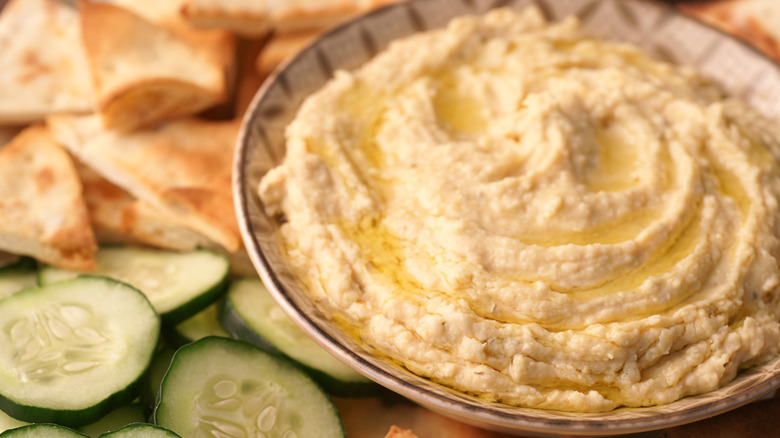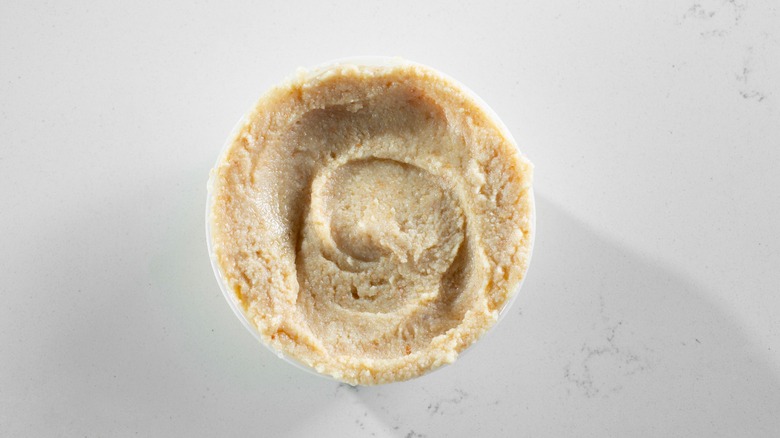Why You Shouldn't Freeze Leftover Hummus
We may receive a commission on purchases made from links.
Hummus, that delightful chickpea (or garbanzo bean, same difference) dip, was introduced, large-scale, to American palates in 1986; though it has been a part of Middle Eastern diets for centuries. Now, there are numerous make-at-home recipes for hummus, but most people just grab a tub of it at the grocery store. The store-bought stuff stays good for about a week (homemade anywhere from three to five days), but if you were thinking about freezing it to extend its shelf-life, you might want to reconsider.
"I do not suggest freezing hummus, as it will diminish the quality," says CJ Jacobson, a contestant on "Top Chef" Seasons 3 and 10 and both chef and partner at Aba and Ēma restaurants, both in Chicago. This is especially true of hummus with any mix-ins or toppings, like roasted red peppers. Such ingredients' flavor can be affected harshly by both the freezing, the thawing, or both.
While store-bought hummus does tend to freeze better than homemade (thanks to the preservatives many companies add to it), overall, sticking any hummus in the freezer will change both its flavor and texture, and not for the better. As Jacobson put it, "I recommend refrigerating it in an air-tight container until you are ready to enjoy!"
Hummus storage best practices
If CJ Jacobson doesn't recommend freezing hummus, then freeze it we shall not. But that does mean you'll want to extend your hummus's life for as long as possible until you either finish it or have to throw it out. So, for starters, keep your perishable hummus refrigerated as much as possible and definitely do not leave it out at room temperature for longer than two hours. This will keep it from reaching the temperature range of 40 to 140 degrees Fahrenheit, which is where possibly dangerous bacteria can grow exponentially.
Also, even if you're the only one eating it, it's best not to dip straight from the container. Instead, portion it out into a small bowl, or remove however much you want to offer to guests and place it in a different dish, like a designated serving bowl. This will keep mouth bacteria from getting into the main portion of hummus and spoiling the entire container. Also, always use clean utensils to scoop out the hummus (as well as to mix in any single-ingredient additions to a homemade batch).

